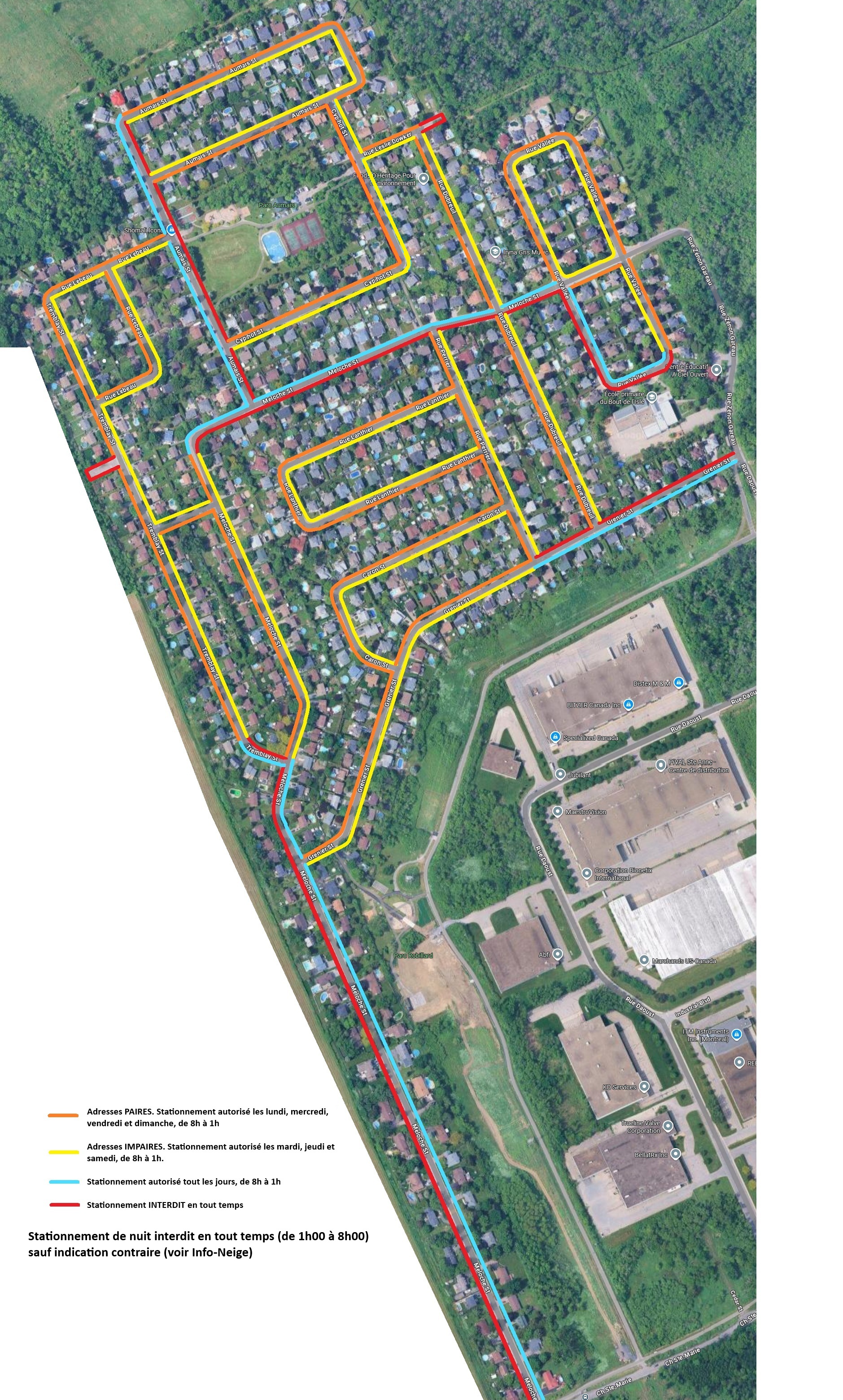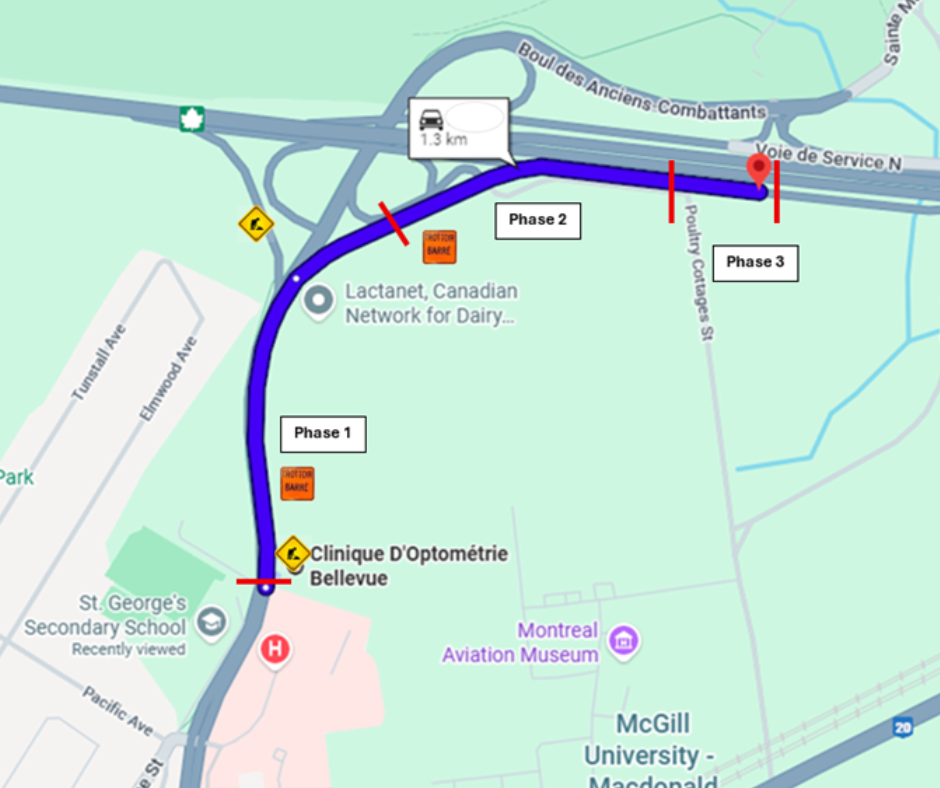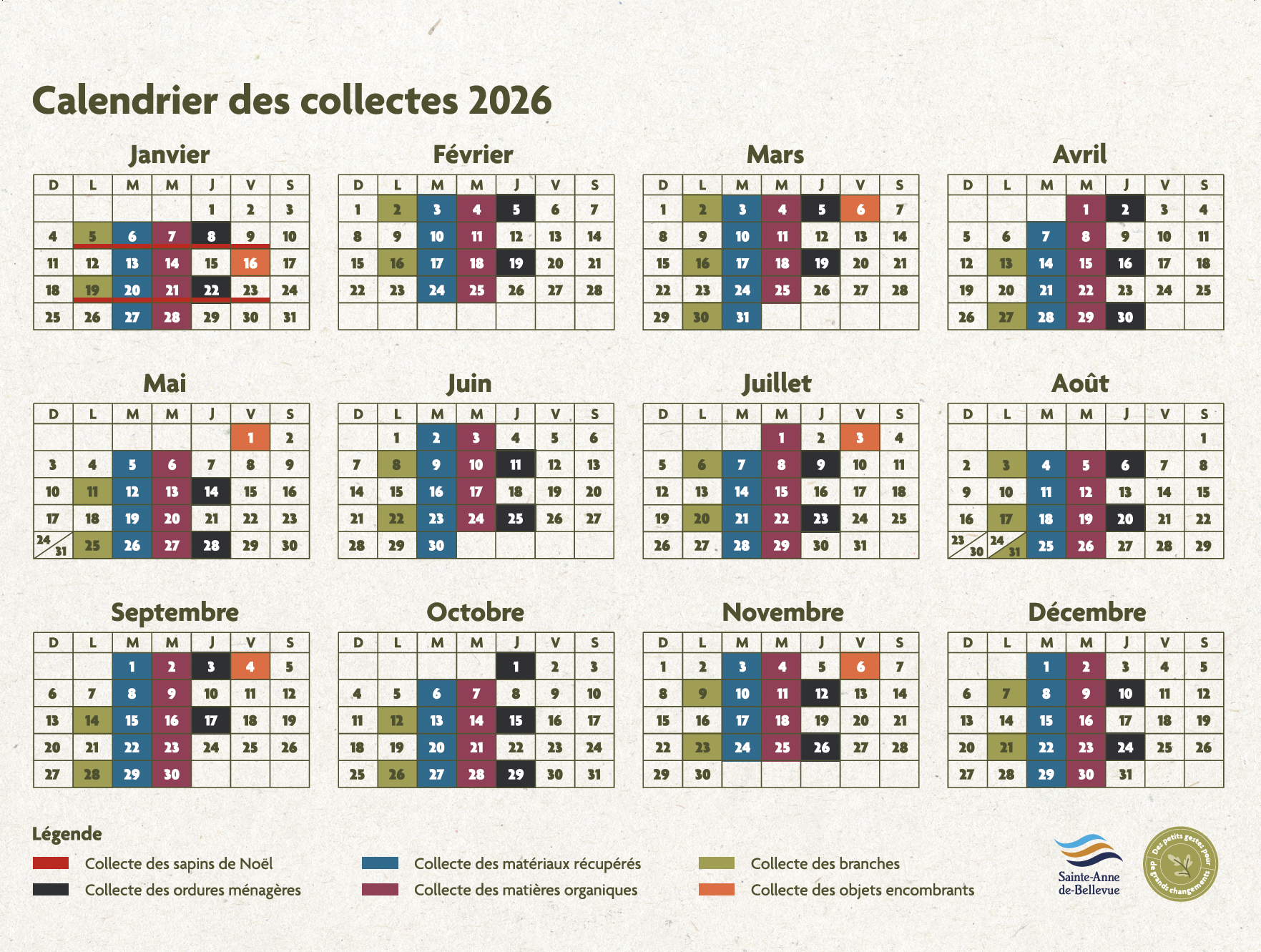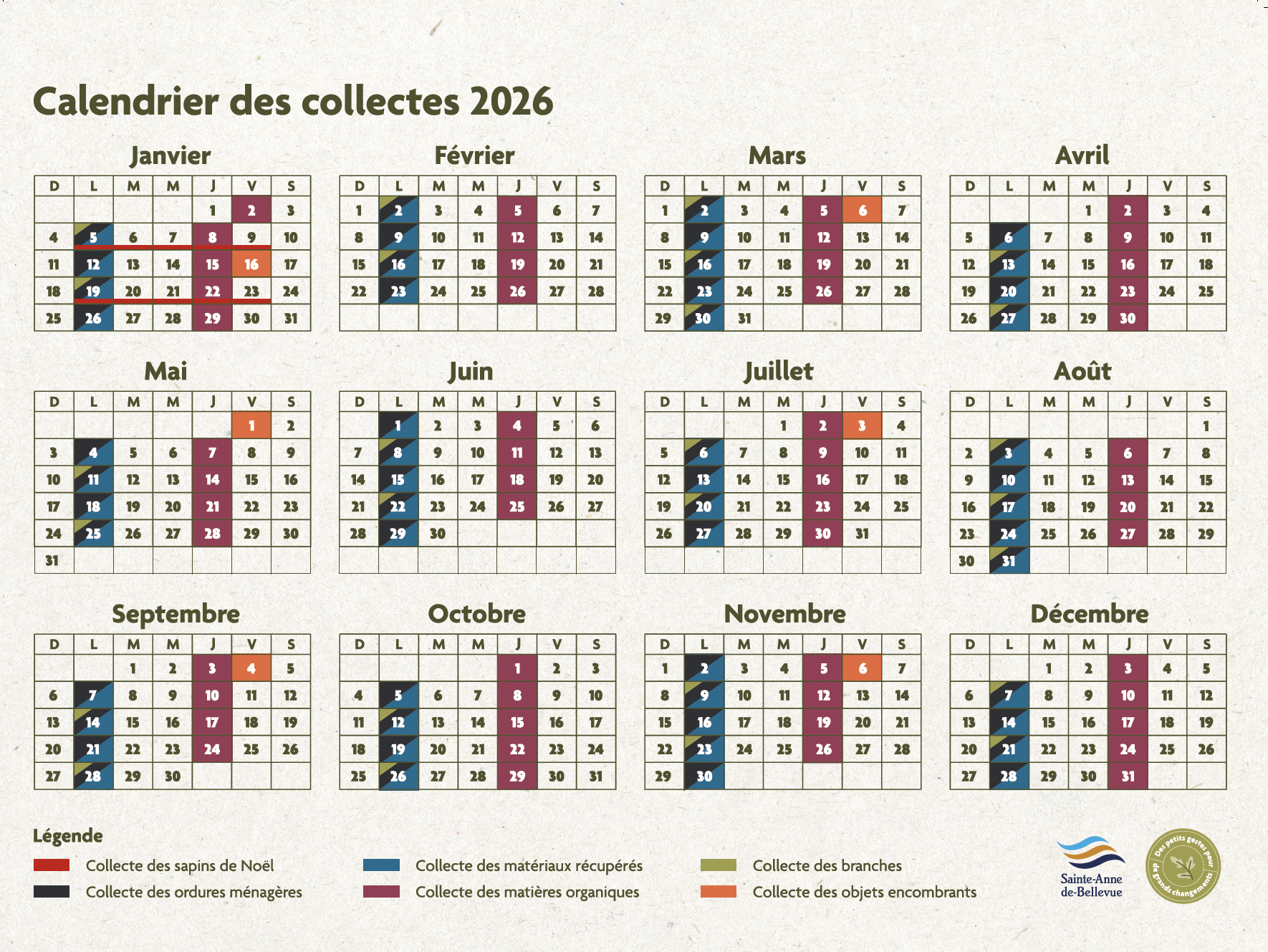Info-neige |
2026-02-15
Stationnement de nuit - PERMIS ✅ du 15 février au 16 février |
|
2025-12-01
Quand le stationnement de nuit est-il permis dans le secteur nord ? |
|
Info-Travaux |
2026-01-02
Des travaux électriques sur le boulevard des Anciens-Combattants, bretelle A-40 est en voie de service A-40 est, du 2 février au 31 juillet 2026Dans le cadre du contrat cadre de maintenance civile des infrastructures souterraines, des travaux électriques seront réalisés par Hydro-Québec pour le Square Bellevue, du 2 février au 31 juillet 2026, entre 7 h et 17 h.
|
Info-collectes |
2025-12-15
Consultez le calendrier des collectes 2026 |










